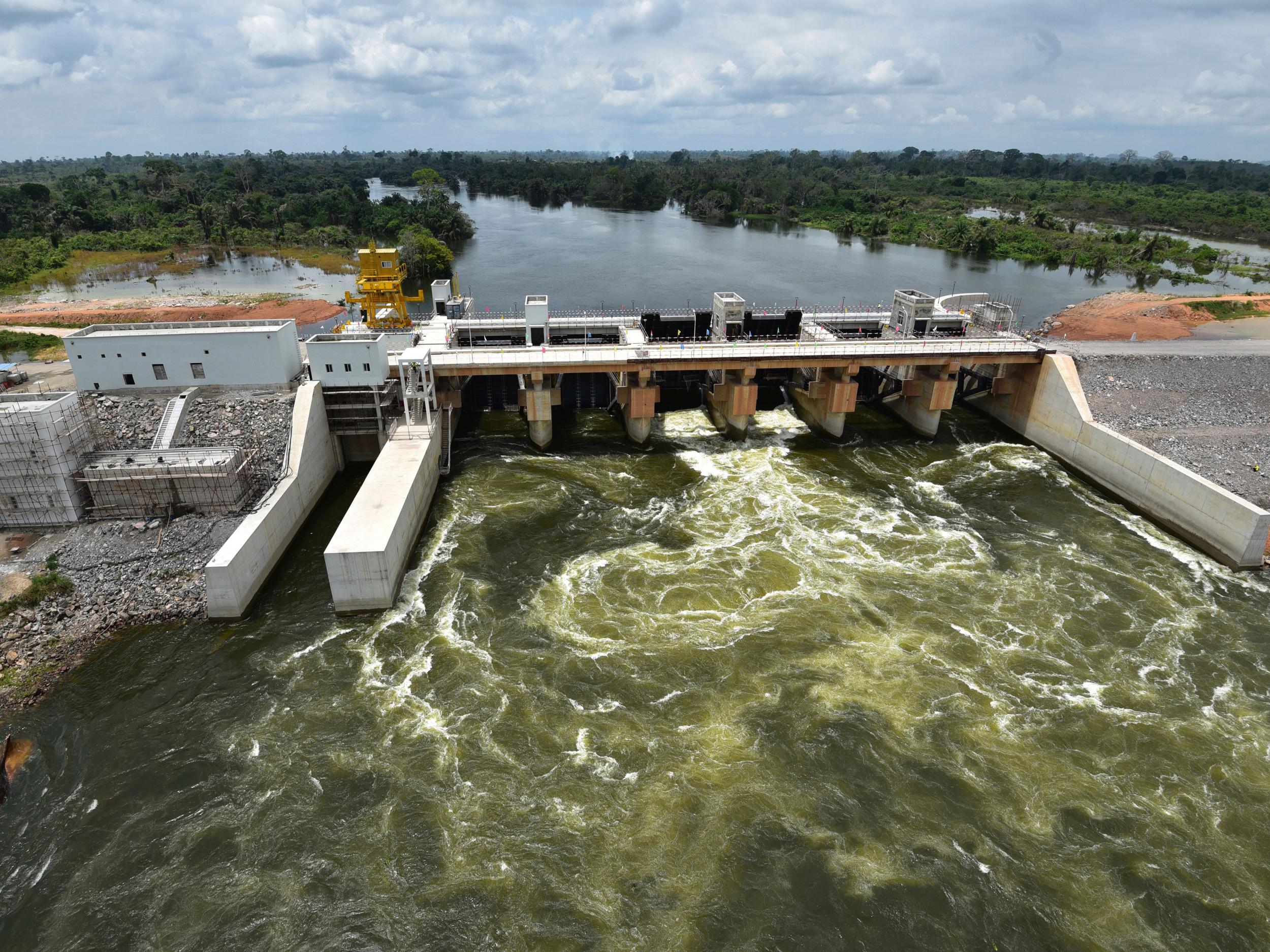Africa to suffer major blackouts as climate change dries up hydropower dams, scientists warn
Southern and eastern parts of the continent set to more than double their hydropower capacity in coming decade

Your support helps us to tell the story
From reproductive rights to climate change to Big Tech, The Independent is on the ground when the story is developing. Whether it's investigating the financials of Elon Musk's pro-Trump PAC or producing our latest documentary, 'The A Word', which shines a light on the American women fighting for reproductive rights, we know how important it is to parse out the facts from the messaging.
At such a critical moment in US history, we need reporters on the ground. Your donation allows us to keep sending journalists to speak to both sides of the story.
The Independent is trusted by Americans across the entire political spectrum. And unlike many other quality news outlets, we choose not to lock Americans out of our reporting and analysis with paywalls. We believe quality journalism should be available to everyone, paid for by those who can afford it.
Your support makes all the difference.African nations could face devastating blackouts as rising temperatures dry up their hydropower dams.
Based on recent years in which extremely dry conditions saw electricity drop off in large areas, a new report by climate scientists has warned that the trend for dam construction may be misguided.
As it stands, countries in southern and eastern Africa are due to more than double their hydropower capacity by 2030.
But the scientists behind the paper warned that current efforts to mobilise the region’s vast hydroelectric potential may face challenges, while urging regional governments to launch their own investigations into these potential risks.
“Unpredictable changes in water availability clearly pose significant risks to the viability of hydropower plants, as well as the electricity security of the countries,” said Professor Declan Conway from the Grantham Research Institute on Climate Change and the Environment.
“A single widespread drought could disrupt many countries at the same time, including those countries, such as South Africa, that are connected to the regional power pool but do not have many hydropower dams of their own.”
Many of the dams currently being planned will be located in the very same river basins that have been worst affected by drought in recent years.
“The El Niño in 2015 and 2016 brought drought conditions to southern Africa and lowered water levels in dams so much that many areas experienced blackouts,” Prof Conway said. “If these countries build even more hydropower dams in the same river basins, they will all be at risk during future droughts, threatening further blackouts.”
Over 80 per cent of the new hydropower capacity in eastern Africa is planned for the Nile basin, and nearly 90 per cent of southern Africa’s for the Zambezi basin.
Professor Conway, who presented his findings at the Royal Geographical Society in London, warned that climate change models predict that any harmful effects of drought on hydropower capacity will only get worse in the future.
Besides action by African governments, the authors of the report called for international aid organisations, such as the World Bank, to consider these factors when making decisions about financing new dams.
Earlier this year residents of Cape Town in South Africa were preparing for Day Zero – when water supplies dropped so low the authorities would have had to cut off water to most of the population.
Scientists have warned that this kind of drought is likely to become more frequent and more severe in the coming years as the world begins to feel the effects of climate change on a large scale.
Major hubs outside of Africa from Mexico City to London are likely to feel the effects of these droughts, and experts have warned that policy makers must begin preparing for these events now.
Join our commenting forum
Join thought-provoking conversations, follow other Independent readers and see their replies
Comments